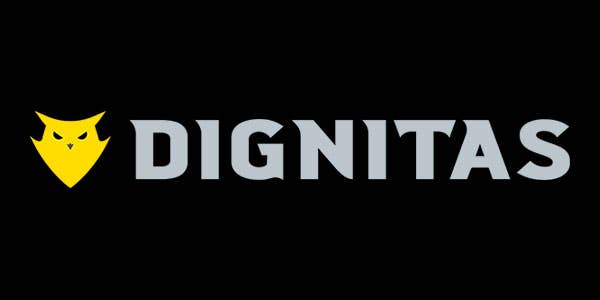Dignitas CEO: Soccer, basketball, and esports will be the major sports of the future
Michael Prindiville shares optimism for esports industry and predictions of consolidation ahead of keynote at Esports BAR Miami
After moving from traditional sports media to his current job as CEO of Dignitas, Michael Prindiville understands well when it's appropriate to compare the two industries...and when it's not.
Prindiville came to Dignitas from NBC Sports, initially beginning in production and building businesses around soccer. Toward the end of 2013, he joined NBC's Ventures Group looking at building businesses in the non-traditional space, which quickly led him to esports. Prindiville immediately saw the appeal of esports as a way to reach the ever-elusive younger demographic, spending his years heading up venture capital deals and operating NBC's esports tournament series, the Universal Open, before a call from the 76ers brought him right into the thick of the industry and his current role.
Beyond the metrics and numbers of it, Prindiville says he knew esports would be big just from his own experiences growing up playing games with his friends and watching those games turn into an industry where people actively watched others play as entertainment. He says that "actually, physically going to the competitions" only reinforced this view, as he saw a level of excitement in the room "on par with, or even beyond" the excitement of traditional sports games.
Prindiville's traditional sports background has given him helpful insight into how esports is both similar and different from the sports it's now competing with for airtime on broadcast networks like the one he left. But while he understands that comparing the two can be helpful in initial explanations to those new to the industry, he thinks that such a comparison only tells part of the story.
"Esports is redefining how we understand an athlete"
"Esports is redefining how we understand an athlete. The athletes within esports are not the physical specimens that you see within traditional sports. But it's the level of intelligence, communication, and strategy that goes into these games, especially the team-oriented esports, that I don't think we've seen before in an athlete. And these athletes are incredibly dedicated. Their mental strength is beyond the charts.
"If you're playing in a football game or basketball game, and your attention slips for a second, it can be detrimental. But it also doesn't have to be. Like if I'm a baseball player, and I'm in center field, and I look to the crowd for a second, that's fine. The chance of a fly ball coming my way is like one every three innings, right? But the inability to deviate your attention, even for a split second, when you're playing one of these esports games would be detrimental to your team. I think that it's a fascinating landscape of evolution, of telling the story of these current athletes and gaming and eSports, and of them being the blueprint for what we'll see in terms of 'athletes' going forward in the future."
Prindiville is understandably a staunch advocate of esports players, saying that understanding the gravity of esports and having respect for those who participate is something that the esports audience, media, and public at large often gets wrong about the space.

"The classic stereotype is all these kids must be playing in their basement eating Cheetos, and drinking Mountain Dew all day. And that's obviously false, right? But that's kind of the broad one, and the one that just gets missed is the lack of respect for the players' intelligence. These athletes have spent their whole life -- ten to 20 hours a day -- in front of a computer either playing games or communicating with their friends on different platforms, or learning how to build PCs and take them apart. Due to that dedication, many of them didn't go through traditional schooling. Maybe they skipped college. But the intelligence of these folks is off the charts. It's something that I've never seen in any other 'sport.'
"In esports you are dealing with a number of borderline geniuses, and a lot of them will move into an organization like mine or start their own business"
"In esports you are dealing with a number of folks who are borderline geniuses, and a lot of these professionals will finish their professional career in the world of esports and move into an organization like mine or start their own business and do very, very well."
Prindiville will deliver a keynote speech at Esports BAR Miami, where he will step onstage alongside Pepsico's marketing director for Mountain Dew, Faye Stein, to discuss lessons they've learned over the years from their partnership. Both Prindiville and Pepsico were quick sells on esports, with the latter a natural fit for the space given Mountain Dew's (admittedly stereotypical) ties to gaming. And while other non-endemic brands are finally coming around on esports too, Prindiville says the floodgates have only just opened in the last few years.
"Five years ago, you had your endemic range of PCs and monitors and headsets; they were always heavily involved in esports. We started to see the non-endemics come in four or five years ago. One by one, we've seen almost every single non-endemic enter the space. It simply goes back to metrics, right? These companies are understanding that the majority of the 'coveted eyeballs' from a demographics perspective are either playing video games, or watching other people play video games for entertainment or competitive purposes.
"I think that it's been a real learning process. Three years ago, when we would speak to non-endemics, it was literally walking them through what gaming is, what competitive gaming is, what esports is, what's the value proposition. And now, rarely do we run into a conversation with a non-endemic where they need Esports 101. They're all familiar with it, they understand the value prop, and they understand that this is an audience that is highly intelligent, highly successful in the professional space."
Though Prindiville is naturally an optimist about the prospects of esports investment, he isn't letting that optimism run away with him. I ask for his thoughts on recent discussions implying that the esports industry wasn't doing as well as its advocates said it was, and that the "bubble" would burst soon.
"I think you can put esports up there with the likes of Bitcoin, cannabis, and a couple other major hot topics within the world"
He replies that while the industry was certainly on the cusp of a major upheaval, it was a natural one for a budding industry to undergo.
"I think you can put esports up there with the likes of Bitcoin, cannabis, and a couple other major hot topics within the world," he says. "So you're going to have a lot of people racing to the gates to try to start up businesses and create an arbitrage to drive revenue. And once those businesses settle down, there's consolidation, and that separates the contenders from the pretenders. And I do believe that in the esports world and in the wider gaming world, there are a variety of businesses that have spun up. Some are incredibly compelling; some others are less so. And as the market waxes and wanes and as money comes in and money doesn't, you will see consolidation. That's healthy in an industry of significant growth."
Prindiville says that this consolidation is already beginning and will continue over the next few years. As more of the money moves to the top levels of esports in its biggest leagues, Prindiville sees a shift that will ultimately shape what esports looks like in a decade or more.
"I think consolidation is going to happen across games, and leagues and tournaments specifically," he says. "I think that you'll have something like 'featured products' within each game, top leagues and top tournaments will receive greater attention, and I think that you'll see that attention will be bolstered by the aging out of traditional sports. When that happens, you'll see a lot of brands continue to allocate and dedicate more dollars towards the esports and gaming space, which will in turn further buttress the consolidation process, and lend more light to the the top leagues and games.
"I think that we're just becoming a society that's going to care a lot more about gaming and a lot less about traditional sports. The traditional sports will still be around. Soccer on a global level and basketball through the NBA will certainly be around 20 years from now. But I think that competitive gaming will be the third major 'sport' that's out there."









